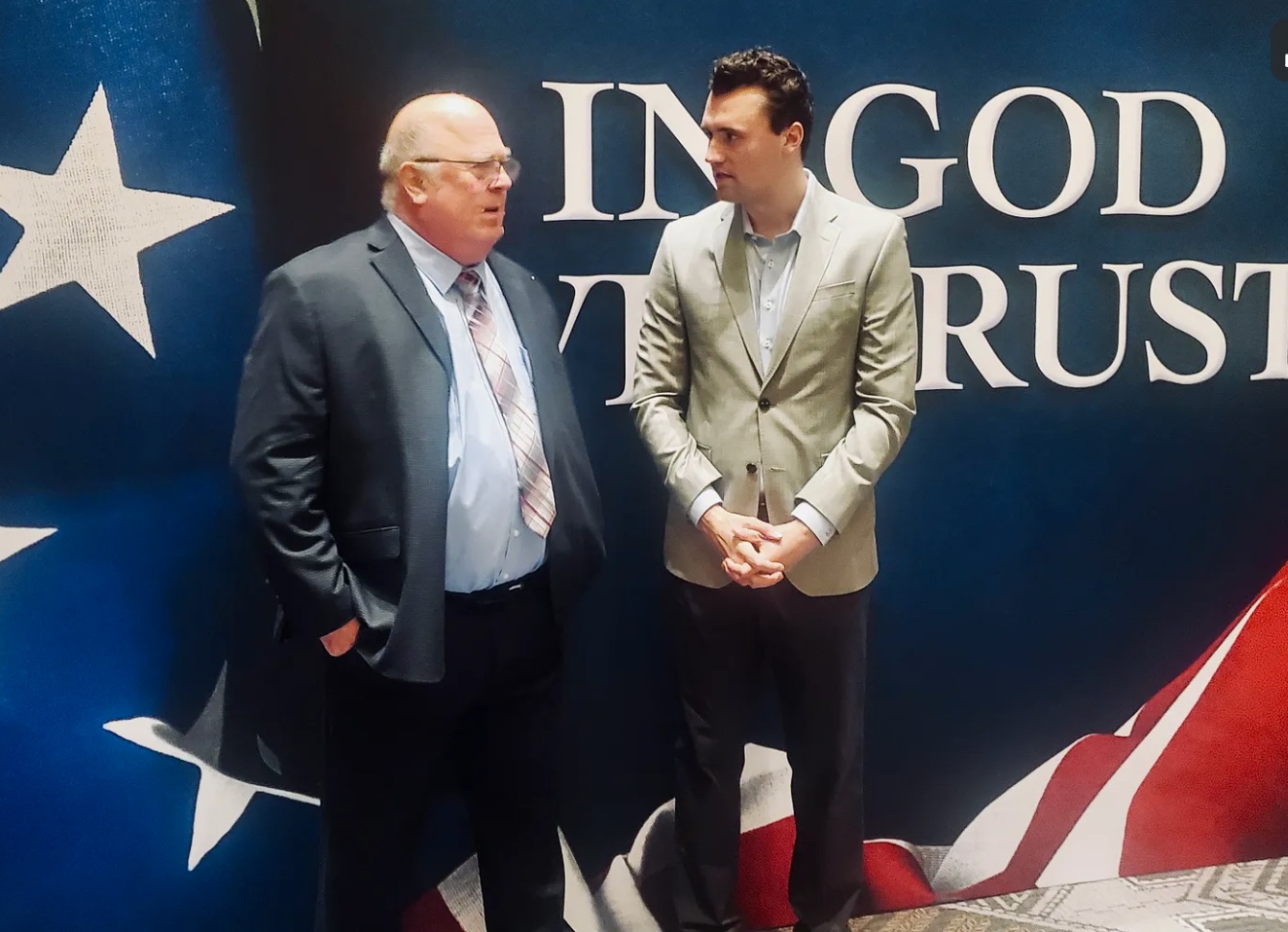In the story of our nation, there are certain men who stand out because they did more than just talk about change, they stepped into the arena and lived it.
John F. Kennedy and Charlie Kirk could not have been more different politically, but both understood what it meant to be engaged citizens who loved their country enough to act.
They understood that holding people accountable to affect change started with themselves. Kennedy, in his inaugural address, challenged Americans to ask what they could do for their country, not what their country could do for them. That spirit carried through his life, from his service in the Navy to the way he inspired people with his words. Charlie Kirk, though born decades later and standing on the opposite side of the political spectrum, carried that same torch of involvement until his tragic assassination on September 10, 2025.
Kirk grew up in Illinois, raised with the kind of middle-class values that teach hard work and determination. He turned down the safe and predictable path of college to instead start Turning Point USA when he was only 18 years old. Like Kennedy, who could have leaned on family privilege but instead chose to put himself in harm’s way in World War II, Kirk understood that sitting on the sidelines was not an option. He believed action, even at personal risk, mattered more than comfort.
Both men built their influence using reason, logic, and rhetoric, not by attacking others, but by respectful debate. Kennedy’s debates in 1960 are remembered not because he attacked Richard Nixon personally, but because he laid out his vision with clarity and confidence.
Charlie Kirk did the same across campuses nationwide. He met with students of every background, argued ideas instead of slinging insults and name calling. He loved God and he loved people and he used facts and logic to challenge progressive orthodoxy. He believed real change came from engaging with those who disagreed, not silencing them. That approach, building bridges instead of burning them, is why so many young people listened to him and why his movement grew so quickly.
Turning Point USA under Kirk’s leadership became one of the most influential conservative organizations in America. From a handful of students, it grew to thousands of chapters and millions of young people empowered to speak up for liberty, free markets, and limited government.
Kennedy used the presidency to launch the Peace Corps and inspire Americans to look to the stars, while Kirk built a movement that put young conservatives in the fight for the future of our Republic. Both understood that lasting change only comes when citizens get involved, when they step into the arena, put in the hard work, and believe that America is worth defending.
Their stories end in tragedy. Kennedy was assassinated in 1963, Kirk in 2025, both victims of the same political violence that threatens the very fabric of our democracy. But their legacies do not end with their deaths. What they taught us, each in their own way, is that this country will only survive if Americans are willing to do more than complain. Sitting behind the keyboard and lobbing word grenades to somehow try to hold others accountable is untenable. It simply will not work. We have to get in the fight, speak the truth, and engage with courage and respect.
Charlie Kirk, like John F. Kennedy, reminded us that patriotism is not bound by party. It is bound by love of country and the willingness to step into the arena. As we grieve his loss, we should also honor his example by refusing to sit quietly on the sidelines; debating issues, not denigrating people. If we want a stronger America, we must do as Kennedy said, and as Kirk lived: ask what we can do for our country, and then go do it.
Kevin McCabe represents District 30 in the Alaska Legislature and can be found at his Substack newsletter at this link.
